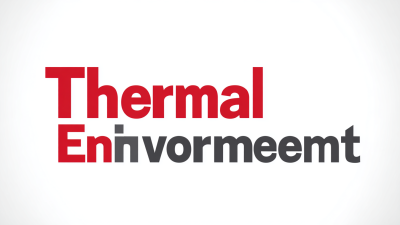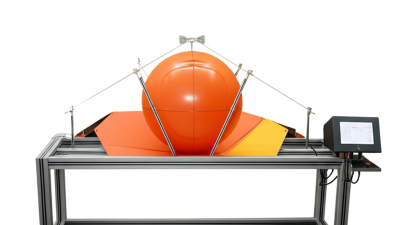
-
Home
-
Product Center
-
Application
-
Support
-
JT Cloud
-
About Us
-
Contact Us
Leave Your Message

In today's rapidly evolving industrial landscape, optimizing the Thermal Environment is becoming increasingly crucial for sustainable operations worldwide. According to a report by the International Energy Agency (IEA), industrial processes account for approximately 24% of global energy-related CO2 emissions, highlighting the urgent need for effective thermal management solutions. As industries move towards sustainability, integrating digital technologies with best practices in thermal management can significantly enhance energy efficiency and reduce greenhouse gas emissions. A study from McKinsey suggests that companies can cut energy costs by 30% by improving their thermal environment through data analytics and smart monitoring systems. By focusing on innovative solutions that address the challenges of maintaining optimal thermal conditions, businesses can not only comply with regulatory requirements but also drive competitive advantage in an increasingly eco-conscious market.

In the pursuit of sustainable industrial operations, enhancing thermal efficiency has emerged as a critical focus area. Innovative technologies are transforming traditional practices, enabling industries to significantly reduce energy consumption and minimize their carbon footprint. Advanced thermal management systems, such as phase change materials and heat recovery solutions, are designed to optimize energy use, ensuring that businesses not only meet regulatory standards but also contribute positively to the environment.
Moreover, the integration of smart sensors and IoT devices plays a pivotal role in monitoring and controlling thermal processes. These technologies provide real-time data insights, allowing for proactive adjustments that enhance efficiency and reduce waste. As industries continue to invest in research and development, the adoption of renewable energy sources, such as solar and geothermal, further supports their goal of achieving a low-carbon future. Embracing these innovative solutions not only promotes sustainability but also positions companies at the forefront of competitive advantage in a rapidly evolving market.
This chart illustrates the average thermal efficiency enhancements achieved through innovative technologies in different industries over the past five years. The data shows the percentage increase in thermal efficiency from 2018 to 2022.
In the pursuit of sustainable industrial operations, the role of
renewable energy in thermal management cannot be overstated. As industries increasingly turn to
renewables like solar, wind, and biomass, they are discovering innovative ways to maintain optimal
thermal environments with minimal ecological impact. Utilizing renewable energy sources allows industries to reduce their carbon
footprint while ensuring efficient thermal regulation, resulting in cost savings and enhanced productivity.
Tip: Consider hybrid systems that combine conventional energy with renewable sources.
For instance, integrating solar thermal collectors can augment traditional heating systems, offering a sustainable approach to managing
heat in industrial processes.
Moreover, leveraging energy storage solutions ensures that renewable energy can be harnessed effectively. By storing excess energy generated
from renewables, industries can maintain consistent thermal control regardless of fluctuations in energy supply. This capability is essential for
processes that require stable temperatures for optimal operation.
Tip: Invest in smart energy management systems that can monitor and adjust thermal operations
in real-time. This not only increases efficiency but also aids in maximizing the usage of renewable energy, leading to a more sustainable industrial model.
In the quest for sustainable industrial operations, reducing the carbon footprint of heating processes has emerged as a critical focus. According to the International Energy Agency (IEA), industrial heating accounts for approximately 30% of global energy consumption and is responsible for nearly 10% of CO2 emissions. To combat these statistics, industries are increasingly turning to innovative strategies that enhance efficiency while minimizing environmental impact.
One effective approach involves the implementation of advanced heat recovery systems, which can capture and reuse waste heat generated during industrial processes. A report by the U.S. Department of Energy indicates that implementing heat recovery technologies can lead to energy savings of up to 50%. Moreover, transitioning to renewable energy sources, such as biomass or solar thermal energy, contributes significantly to reducing reliance on fossil fuels and decreasing overall emissions. By integrating these strategies, industries not only meet regulatory requirements but also enhance their long-term sustainability and competitiveness in the marketplace.
The thermal environment solutions sector is experiencing rapid growth, driven by the increasing demand for efficient energy systems across various industries. The global heat exchanger market, for instance, is projected to grow from $17.61 billion in 2023 to $35.34 billion by 2032, reflecting an impressive compound annual growth rate (CAGR) of 8.26% from 2024 to 2032. This significant escalation underscores the importance of developing innovative thermal solutions that enhance sustainability and energy efficiency.
In addition to these market dynamics, case studies from around the world highlight successful thermal management strategies that have been implemented across different sectors. For example, cities participating in the C40 initiative have rolled out over 500 unique solutions aimed at improving urban climate resilience, focusing on reducing energy consumption and carbon emissions. These localized strategies not only address immediate thermal management challenges but also align with global efforts to combat climate change through South-South cooperation, demonstrating that collaborative approaches can yield substantial benefits in the quest for sustainable industrial operations.
The future of industrial operations hinges on adopting advanced thermal solutions that align with sustainability goals. As global awareness of climate change intensifies, industries are increasingly seeking ways to minimize their thermal footprint. Innovative technologies such as advanced heat exchangers, waste heat recovery systems, and energy-efficient cooling solutions are paving the way for more sustainable practices. By harnessing these technologies, companies can not only reduce energy consumption but also lower greenhouse gas emissions, establishing a more responsible operation that meets both regulatory standards and consumer expectations.
Emerging trends in thermal solutions indicate a shift towards integration with renewable energy sources, driving industries to rethink their thermal management strategies. For instance, the incorporation of solar thermal technologies and geothermal systems is becoming more prevalent, allowing facilities to utilize cleaner energy sources for heating and cooling needs. Additionally, the rise of smart thermal management systems, equipped with real-time monitoring and AI-driven analytics, enhances efficiency and agility in operations. As these solutions evolve, manufacturers and industrial operators are positioned to not only improve their thermal performance but also contribute positively to the global effort for sustainability in industrial practices.





